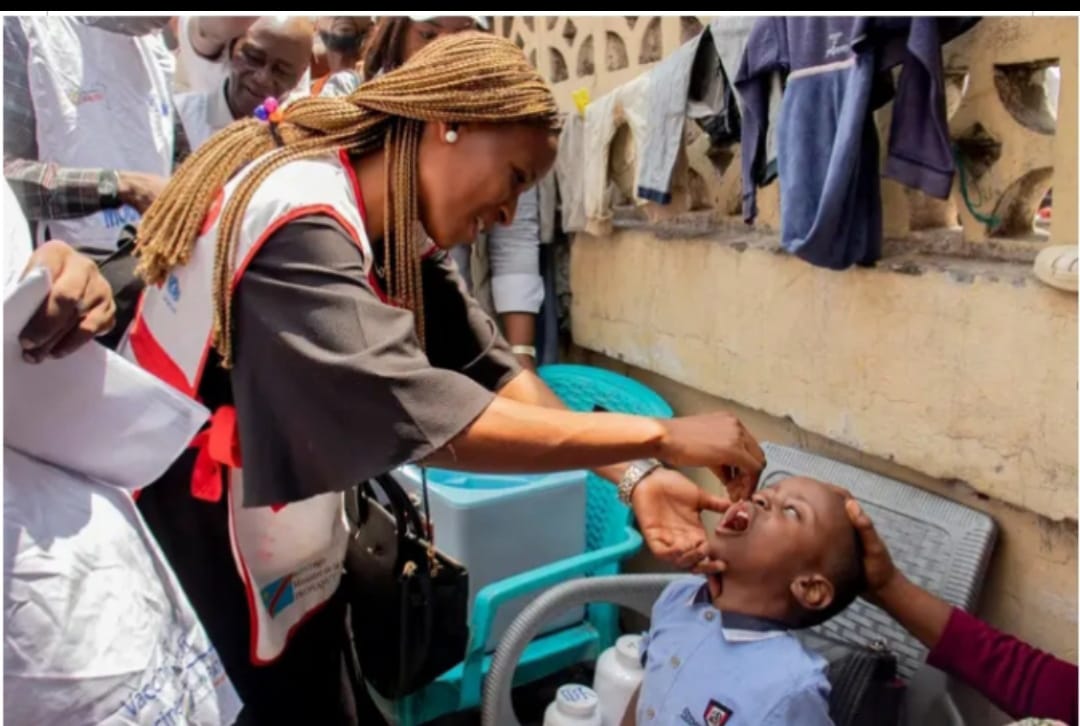
Vaccination in DR Congo. Toward the elimination of the “zero dose” phenomenon
Vaccines: research has intensified over the past decade
Scientists and researchers around the world continue to collaborate to find new vaccines and propose solutions to combat infectious diseases that still cause epidemics and millions of deaths.
Several infectious diseases that affect Africa, such as Ebola, dengue fever, HIV-AIDS, hepatitis C, malaria and others, are the focus of intense research.
Overcoming vaccine resistance
Vaccines are the most effective means of protecting ourselves and those around us from some serious infections. However, resistance persists among the population, especially in developing countries. In these areas, vaccination raises many questions, “How do vaccines work? Why administer multiple vaccines at the same time?” “Why make some vaccines mandatory and not others? “Aren’t the side effects of vaccines dangerous?
Add to this the isolation of some areas, the impassability of many roads, security problems, the lack of conservative equipment such as refrigerators, the absence of well-trained staff… All these factors make access to vaccines difficult.
How do vaccines work?
Vaccination involves the introduction of a completely harmless microbe (the antigen) into the body, either by injection or orally. The body reacts to this false microbe by producing defenses called “antibodies.” Thus, when the body encounters the real microbe, it can effectively defend itself using antibodies. It is important to know that vaccines protect only against the diseases against which the person is vaccinated (for example, the polio vaccine protects only against polio).
After vaccination, some side effects may occur in children: itching, fever, nausea, vomiting, diarrhea, headache, etc.
Thanks to vaccination, diseases such as smallpox have disappeared, while other infections, such as polio, have become very rare.

Vaccination, the “zero dose” phenomenon in DR Congo
Statistics from the Expanded Immunization Program (EPI) show that in the DRC, pneumonia is the leading cause of morbidity in children under the age of 5 (a child suffers an average of 14 episodes of respiratory illness per year, compared to 6 in the general population), diarrheal diseases are second (a Congolese child under the age of 5 suffers an average of 6 episodes of diarrhea per year), and malaria is the third cause.
In this country, efforts are being made at all costs to eradicate the “zero dose” phenomenon. Last April, the Ministry of Health and the Agence Congolaise de Réglementation Pharmaceutique (ACOREP) released a report showing that more than 4 million children had received zero doses of vaccines since birth. This is a public health situation that can lead to numerous epidemics such as measles, polio, and pneumonia.
To remedy this situation, several organizations, including WHO, UNICEF, SANRU, and Gavi, are organizing vaccination campaigns with the aim of countering the above-mentioned explosion of epidemics in early childhood by strengthening routine vaccination programs and engaging various stakeholders to reach all strata of society and remote areas.
Vaccination, a right and a duty
Complete and systematic vaccination of children before their first birthday is a right for the child and a duty for parents, the state and the community, both national and international. It is mandatory for all children.
In DR Congo, what vaccines are recommended for children?
DR Congo recommends several vaccines for children: Bacille Calmette-Guérin (BCG) vaccine against tuberculosis, diphtheria, tetanus and pertussis (DTP) vaccine, oral polio vaccine (OPV) against polio, and measles vaccine (VAR), yellow fever vaccine (VAA), maternal and neonatal tetanus vaccine (VAT), pneumonia and diarrhea vaccine (Rotatvirus), and meningitis vaccine.
Other vaccine types may be introduced as they become available, depending on the resources mobilized and in accordance with the WHO-recommended universal standards for each country.
In conclusion, all actors in society must become more committed to taking action so that no child dies from a disease that could have been prevented with a vaccine.
